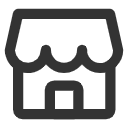- Attractions in Tunisia
- Language
- Tunisia's official language is Arabic, specifically the Tunisian Arabic dialect known as "Derja." However, French also plays a significant role in Tunisian society due to the country's historical ties with France, and it is widely used in education, commerce, and the media. Therefore, many Tunisians are bilingual in Arabic and French. While English is not as prevalent, its usage is growing, particularly among the younger generation and in tourist areas. Additionally, in regions with a significant Berber population, you may hear Berber languages.
- Best time to visit
- For those seeking to enjoy the Mediterranean beaches, the summer months from June to August offer warm, sunny weather, perfect for swimming and sunbathing. However, these months can also be crowded with tourists. For a more comfortable climate and fewer crowds, consider visiting in the spring (April to June) or autumn (September to November). These seasons offer mild temperatures ideal for exploring historical sites and cities. If you're interested in exploring the Sahara Desert, the cooler months from October to March are best, as summer temperatures in the desert can be extremely high.
- Festivals
- Date: MarchFestival name: Independence DayCelebrated on March 20th, this national holiday marks Tunisia's independence from France in 1956. Travelers can witness parades, cultural performances, and national pride events, with many museums and historical sites offering special exhibitions.
- Date: JulyFestival name: Carthage International FestivalHeld in the ancient city of Carthage, this international festival features music, theater, and dance performances from local and global artists. Visitors can experience Tunisia's rich cultural heritage in a stunning historical setting.
- Local cuisine
- Couscous
- A traditional dish made from steamed semolina wheat, often served with a flavorful stew of lamb, chicken, or vegetables, seasoned with spices like cumin, coriander, and saffron.
- Brik
- A popular snack made with thin pastry (similar to phyllo dough) filled with egg, tuna, capers, and parsley, then deep-fried until crispy, typically served as an appetizer.
- Lablabi
- A hearty chickpea soup spiced with cumin, garlic, and olive oil, often served with bread, olives, and a drizzle of harissa (spicy chili paste), making it a perfect comfort food.
- Mechoui
- A dish of slow-roasted lamb, typically cooked in a pit, flavored with garlic, cumin, and olive oil, and served with flatbread or vegetables, often enjoyed during special occasions.
- Tunisian Salad
- A grilled vegetable salad made from tomatoes, peppers, onions, and garlic, all mashed together and drizzled with olive oil, lemon juice, and a sprinkle of cumin.
- Harissa
- A spicy chili paste made from ground red peppers, garlic, olive oil, and spices, commonly used as a condiment or cooking ingredient, adding a fiery kick to many dishes.
- Makroud
- A sweet semolina cake filled with dates or almonds, fried until golden, and soaked in honey, commonly served during celebrations or special occasions.
- Tunisian Tagine
- A savory, casserole-like dish made with eggs, vegetables, and meat (usually lamb or chicken), mixed with spices like cinnamon, ginger, and saffron, and baked in a round clay dish.
- Packing
When packing for a trip to Tunisia, think light and breathable clothing for the hot, dry climate, but also consider modest attire to respect local customs, especially when visiting religious sites. A light jacket or sweater is useful for cooler evenings. Don't forget your swimwear for the beautiful Mediterranean beaches, and a good pair of walking shoes for exploring historical sites. Sunscreen, sunglasses and a hat are essential to protect against the strong sun. If you plan on exploring the Sahara, pack a scarf or bandana to protect against sand.
- Currency
The official currency of Tunisia is the Tunisian Dinar (TND), which is divided into 1000 millimes. Coins come in denominations of 5, 10, 20, 50, 100, 200 millimes, and 1 and 5 Dinars. Banknotes are available in 10, 20, 30, 50, and 100 Dinars. ATMs are widely available in cities and larger towns and most of them accept international cards. However, it's always a good idea to carry some cash, especially when visiting smaller towns or rural areas where ATM access may be limited. Credit cards are generally accepted in hotels, restaurants, and larger shops, particularly in tourist areas. But smaller businesses and market stalls often prefer cash. It's important to note that due to currency restrictions, you cannot buy or sell Tunisian Dinars outside of Tunisia, so remember to exchange any leftover currency before leaving the country.
- Transport
Tunisia's main international gateway is Tunis-Carthage International Airport, located near the capital city Tunis. Other significant airports include Djerba-Zarzis International Airport and Monastir Habib Bourguiba International Airport, serving popular tourist destinations. For in-country travel, Tunisia has a comprehensive transportation system. Trains operated by SNCFT offer an economical way to travel between major cities, while louages (shared taxis) and buses provide flexible options for shorter distances and more remote areas. Taxis are also readily available and quite affordable. In larger cities like Tunis, the light metro system is a convenient option.
- Emergency
It's important to dress modestly, particularly when visiting religious sites. Public displays of affection between unmarried individuals are considered inappropriate. While Tunisia is more liberal than some of its neighbors, it's still a predominantly Muslim country, so respect for Islamic customs is appreciated. Avoid discussing sensitive topics like politics and religion. During the holy month of Ramadan, eating, drinking, or smoking in public during daylight hours can be seen as disrespectful. In case of emergencies, the general emergency number in Tunisia is 112 for the police and 190 for ambulance services.
- Power socket
Tunisia operates on a 230V supply voltage and 50Hz. The country uses Type C and Type E power sockets. Type C is the plug with two round pins and Type E is the plug with two round pins and a hole for the socket's male grounding pin.
- Top Tunisia tour operators
Happy Explore Safari
3 ReviewsOffer Tours InKenya 2 ToursVerified



